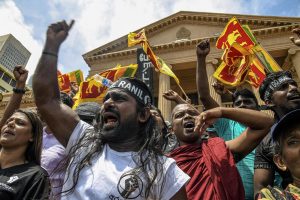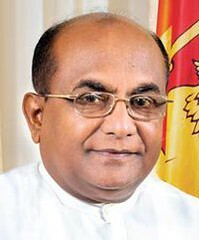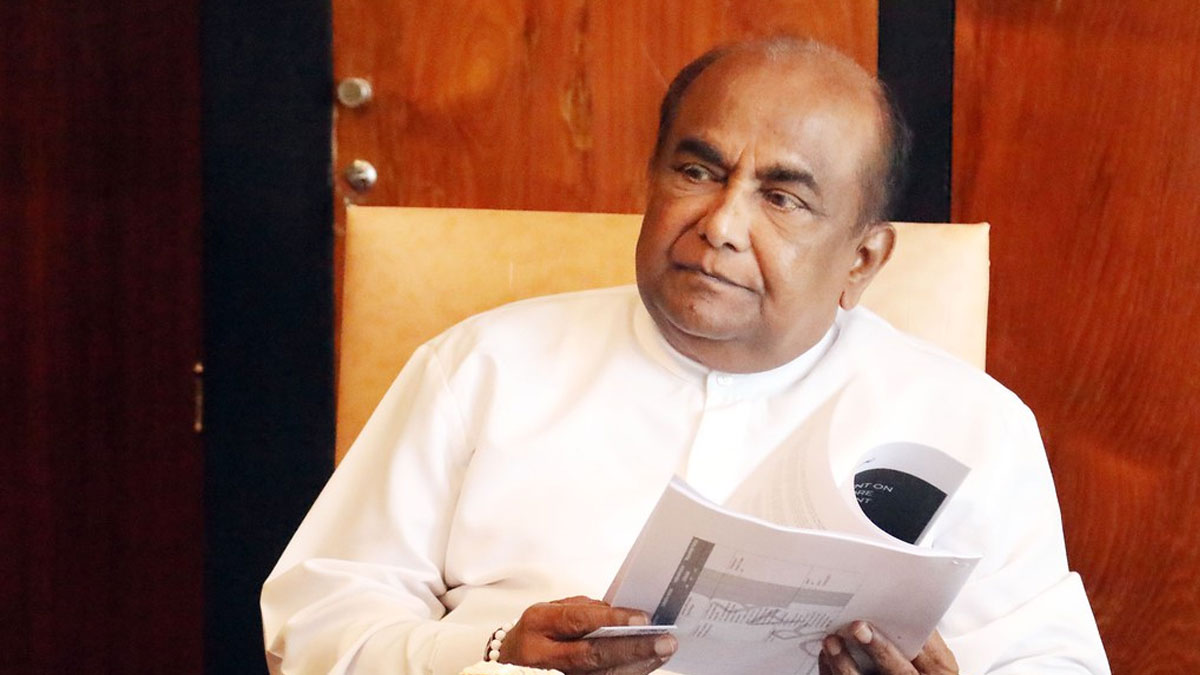Sri Lankan Speaker Dismisses Foreign Role in 2022 Government Change
Parliament Speaker Mahinda Yapa Abeywardana has rebuffed claims of foreign intervention in the mass protests that led to a government change in Sri Lanka in 2022. The turmoil ensued after former President Gotabaya Rajapaksa fled the country, leaving the presidency vacant due to safety concerns.
 Responding to opposition parliamentarian Wimal Weerawansa’s request for a parliamentary debate to investigate the motives behind the protests, Speaker Abeywardana stated that he had no evidence suggesting the involvement of international forces. He emphasized that the protests, known as Aragalaya, posed a threat to domestic stability rather than being influenced by external actors.
Responding to opposition parliamentarian Wimal Weerawansa’s request for a parliamentary debate to investigate the motives behind the protests, Speaker Abeywardana stated that he had no evidence suggesting the involvement of international forces. He emphasized that the protests, known as Aragalaya, posed a threat to domestic stability rather than being influenced by external actors.
Weerawansa’s plea was prompted by a previous statement from the Speaker, where he claimed to have safeguarded the constitution despite pressure from both local and foreign entities to assume the presidency. Weerawansa argued that any attempt to subvert constitutional norms for personal gain would constitute a serious breach of sovereignty.
Parliamentary Inquiry
The events unfolded after President Rajapaksa’s resignation, compelling Speaker Abeywardena to oversee the selection of a new president through a parliamentary vote. Despite constitutional provisions allowing him to ascend to the presidency, sources close to Abeywardena suggest that he was urged to refrain from doing so.
Weerawansa called for a thorough parliamentary inquiry to identify the forces behind the alleged subversion of sovereignty. He proposed a two-day debate involving representatives from all political factions to shed light on the events leading to the regime change.
Meanwhile, some political leaders, notably from the ruling Sri Lanka Podujana Peramuna (SLPP), have propagated conspiracy theories attributing the protests to foreign interference. Gotabaya Rajapaksa himself has espoused this narrative, suggesting that liberal activists, social media influencers, and foreign entities colluded to undermine his government.

In his book titled “The Conspiracy,” Rajapaksa alleges the involvement of foreign-funded groups in orchestrating the regime change. He asserts that foreign powers capitalized on local dissent to advance their geopolitical agendas, employing various tactics to influence public opinion and destabilize the country.
The controversy underscores the complex interplay between domestic politics and international dynamics, with competing narratives shaping perceptions of sovereignty and governance in Sri Lanka. As the debate rages on, the quest for truth remains intertwined with broader questions of national identity and geopolitical positioning







